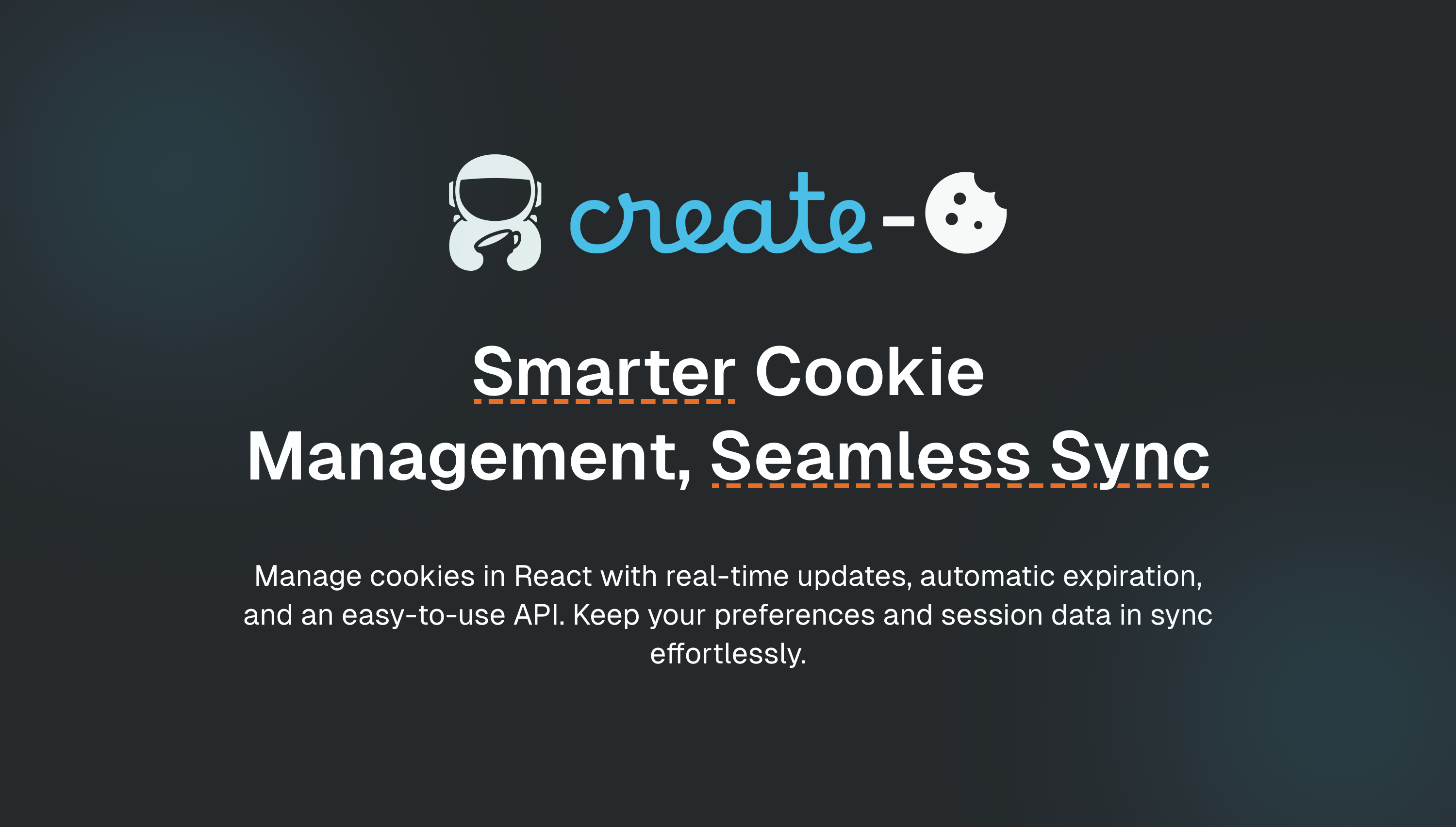
Research
Malicious npm Packages Impersonate Flashbots SDKs, Targeting Ethereum Wallet Credentials
Four npm packages disguised as cryptographic tools steal developer credentials and send them to attacker-controlled Telegram infrastructure.
create-cookie
Advanced tools

Effortless Cookie Management for React Easily get, set, and sync cookies across components with a simple API.
document.cookie.Install via your preferred package manager:
# npm
npm install create-cookie
# yarn
yarn add create-cookie
# pnpm
pnpm add create-cookie
# bun
bun add create-cookie
"use client";
import { createCookie } from "create-cookie";
const Page: React.FC = () => {
const theme = createCookie("theme", "light");
return (
<div>
<h1>Theme: {theme.get()}</h1>
<button onClick={() => theme.set("dark")}>Set Dark Theme</button>
<button onClick={() => theme.reset()}>Reset Theme</button>
</div>
);
};
export default Page;
createCookie<T>(key: string, initialValue?: T, options?: CookieOptions)A React hook for reading and updating cookies easily.
key (string): The key under which the value is stored in cookies.initialValue (T, optional): The initial value to set if the key does not exist.options (CookieOptions, optional): Additional settings like expires and path.get(): Retrieve the current cookie value.set(value: T, options?: CookieOptions): Update the cookie value.reset(): Clear the cookie.hasValue(): Check if the cookie exists."use client";
import { createCookie } from "create-cookie";
const Page: React.FC = () => {
const language = createCookie("language", "en");
return (
<div>
<h1>Language: {language.get()}</h1>
<button onClick={() => language.set("fr")}>Set to French</button>
</div>
);
};
export default Page;
"use client";
import { createCookie } from "create-cookie";
const Page: React.FC = () => {
const sessionToken = createCookie("session", "", { expires: 7 });
return (
<div>
<h1>Session Token: {sessionToken.get()}</h1>
<button onClick={() => sessionToken.set("abc123", { expires: 7 })}>
Set Token (Expires in 7 days)
</button>
</div>
);
};
export default Page;
This package is published with NPM package provenance, which provides supply chain security by cryptographically linking the published package to its source code and build process.
You can verify that this package was built from the source code in this repository:
# Install the package
npm install create-cookie
# Verify the provenance
npm audit signatures
# Or use the provided verification script
npm run verify-provenance
For more information about NPM package provenance, see the official documentation.
Contributions are welcome! To contribute:
This project is licensed under the MIT License - see the LICENSE file for details.
This package is developed and maintained by JP.Coffee. Feel free to reach out or open an issue for any questions or suggestions!
FAQs
Did you know?

Socket for GitHub automatically highlights issues in each pull request and monitors the health of all your open source dependencies. Discover the contents of your packages and block harmful activity before you install or update your dependencies.

Research
Four npm packages disguised as cryptographic tools steal developer credentials and send them to attacker-controlled Telegram infrastructure.

Security News
Ruby maintainers from Bundler and rbenv teams are building rv to bring Python uv's speed and unified tooling approach to Ruby development.

Security News
Following last week’s supply chain attack, Nx published findings on the GitHub Actions exploit and moved npm publishing to Trusted Publishers.